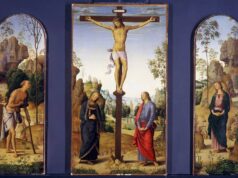Q: My brother is an alcoholic and has already had one failed marriage because of it. He recently got an annulment and is now planning his second wedding. How can the church let him marry again when it seems obvious that his second marriage is going to fail as well?
A: Naturally I cannot comment on your brother’s specific case here. I don’t have all the information, and even if I did, I would still refrain from commenting for the sake of respecting your brother’s privacy. However, I can share some observations about these kinds of situations in general.
First, it is possible that you might not have all the information yourself. Unless your brother was sharing all the paperwork he received from the marriage tribunal with you, you don’t know for sure exactly why your brother’s first marriage was declared null. It might have been for some other reason besides a psychological impediment related to his alcoholism. For example, the union might have been declared null because of some impediment on your former sister-in-law’s part.
While alcoholism and drug addiction are, objectively, serious problems for people’s lives, in specific instances they might not always be of such a nature or severity so as to render a particular marriage invalid.
The church does not declare marriages invalid because of alcohol or drug addiction per se. Rather, a marriage might be declared null for reasons related to substance abuse because the misuse of such substances caused the person to suffer from a “grave lack of due discretion of judgement” (see Canon 1095, 2 of the Code of Canon Law), meaning that they were unable to rationally evaluate the prospect of marriage as applied to themselves; or because their chronic substance abuse left them “incapable of assuming the essential obligations of marriage,” (Canon 1095, 3) meaning that they were unable to do the basic things married people need to be able to do, such as being able to care for children or remaining faithful to a spouse.
But assuming for the sake of argument that your brother’s first marriage was declared invalid for reasons directly related to his alcohol abuse, the church does acknowledge that it is possible for people to overcome such problems. At the same time, the church — and certainly tribunal staff as well — are not naïve about such things. And so often, if a marriage is declared null because of issues related to substance addiction, the tribunal will place what is called a “vetitum” on the affected party.
A vetitum is a liftable restriction on marrying. Usually for cases of nullity related to addiction, the vetitum will be something along the lines of the affected party needing the tribunal’s permission to marry, with the tribunal consulting mental health experts in determining whether to grant that permission.
Practically, this means that the affected party will need to see a psychologist or similar professional who will advise the tribunal on whether the person is sufficiently healed so as to now be able to contract a valid marriage.
But underlying all these considerations is a perhaps surprising but still foundational principle in the church’s understanding of marriage: Namely, that human beings have a fundamental right to marry.
Of course this is not an absolute right, and a priest can and should refuse to marry a couple when there are obvious impediments, like if someone is already married. But for the most part a pastor cannot refuse to witness a marriage in more ambiguous scenarios, such as when there are possible but not totally indisputable psychological issues.
Even if the priest has his own personal doubts, he is still obliged to celebrate the wedding — though he might put a discreet note in the marriage file “just in case” it should ever land on the desk of the marriage tribunal in the future.
Jenna Marie Cooper, who holds a licentiate in canon law, is a consecrated virgin and a canonist whose column appears weekly at OSV News. Send your questions to CatholicQA@osv.com.












